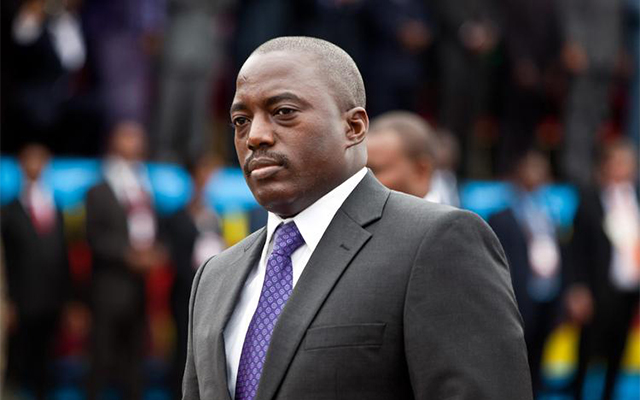Kabila transition deal agreed


Joseph Kabila
KINSHASA. – Congolese politicians have agreed in principle to a deal under which President Joseph Kabila leaves office by the end of 2017, opposition leaders said yesterday, an unexpected breakthrough after dozens were killed in anti-government protests this week.
In return, the constitution cannot be changed to let President Kabila stand for a third term, a prime minister will be named from the main opposition bloc and its leader Etienne Tshisekedi will oversee the implementation of the deal, Martin Fayulu and Jose Endundo told Reuters.
“Kabila stays for one year,” Fayulu said. “He will not try to stand for a new term.”
A government spokesman declined to comment on the specifics of the deal, which requires final approval by all the delegates at negotiations mediated by Democratic Republic of Congo’s (DRC) Catholic Church.
Jean Marc Kabund, the secretary general of Congo’s largest opposition party, the UDPS, warned that the deal was not yet a sure thing.
“Today is the last day (of negotiations),” he told Reuters. “It’s make it or break it.”
President Kabila’s mandate expired at midnight on Monday, but he has remained in office as a presidential election scheduled for last month was postponed until at least April 2018 because of what the government said were delays registering voters. He has declined to commit publicly to not changing the constitution, leading to accusations that he is trying to cling to power.
President Kabila’s allies have repeatedly argued that he is committed to respecting the constitution but that promising to step down would make him a lame duck and possibly spark a power struggle that could put his life in danger. His father, President Laurent Kabila, was assassinated by a bodyguard in 2001.
This week’s protests, which killed at least 34 people, and a disparate clashes between ethnic militias have raised fears Congo is heading towards another major armed conflict. Millions were killed in wars between 1996 and 2003.
It was not immediately clear how the wider population would react to an agreement. On Twitter, a leader of the youth activist group Filimbi, Floribert Anzuluni, said it constituted “high treason by everyone”. However, many in the capital Kinshasa, who spoke to Reuters on Thursday after the protests subsided, said they were tired of the violence and hoped for a negotiated settlement. – Reuters.









Comments